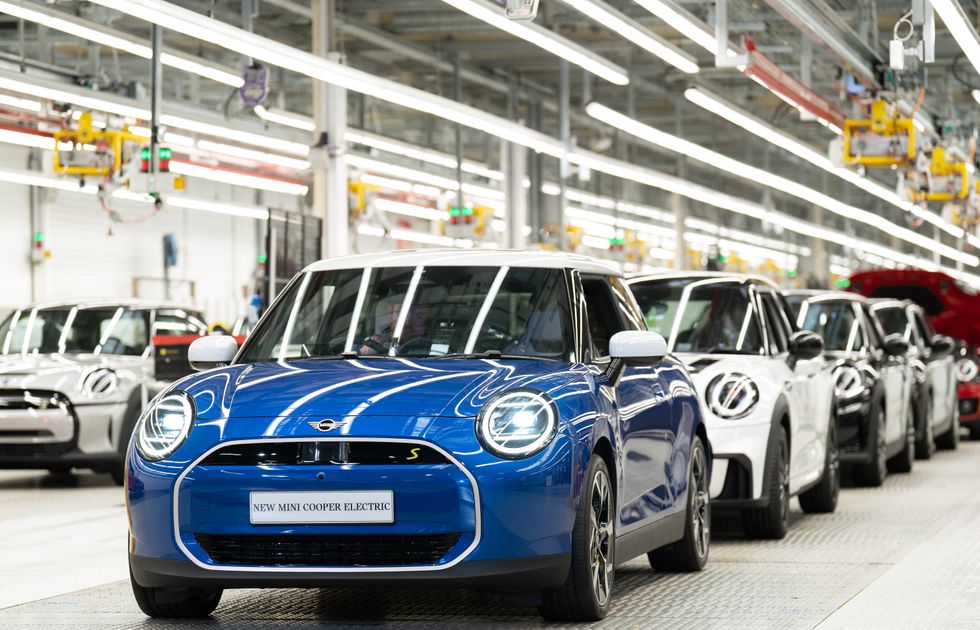The Labour Government could be facing a fresh headache just days into the new administration in relation to fears that electric vehicle sales targets could be thrown into chaos.
Keir Starmer’s party claimed a landslide victory last week, securing 412 seats in the House of Commons, prompting Rishi Sunak to step down as Prime Minister with the Conservatives losing 251 MPs.
Labour has been calling for change in the Government, running on a commitment to improve conditions for Britons, although Keir Starmer faces his first motoring hurdle with the Zero Emission Vehicle mandate.
The current terms of the ZEV mandate state that manufacturers must ensure that zero emission vehicles make up a minimum percentage of sales every year.
Do you have a story you’d like to share? Get in touch by emailingmotoring@gbnews.uk
Labour has pledged to install more electric vehicle charging stations
PA
From the end of this year, manufacturers will be required to have 22 per cent of total sales be zero emission, which in most cases would be electric vehicles.
This percentage will rise every year with key deadlines including an 80 per cent limit by 2030 and 100 per cent by 2035 – the same date as the deadline to ban the sale of new petrol and diesel vehicles.
However, Labour has consistently supported plans to reinstate the original 2030 deadline to ban internal combustion engine vehicles after Rishi Sunak’s decision to reverse a number of key net zero pledges.
If Keir Starmer’s Government were to bring the 2030 date back, manufacturers could be left in limbo regarding when they can continue to sell petrol and diesel vehicles – 2030 or 2035.
Many manufacturers lamented Rishi Sunak’s decision to scrap the 2030 deadline, saying they already had processes and plans in place to adhere to the strict deadline.
If laws change again in the near future, carmakers could be forced to perform another major U-turn, further disrupting sales plans and throwing the UK market into chaos.
One possible solution for manufacturers in Britain includes exporting ICE vehicles to other markets, like the European Union, North America or Asia.
While this could be feasible for some brands, the majority of other global superpowers have already pledged to phase out polluting vehicles, making uptake of these vehicles towards the end of the decade slim.
Mike Hawes, chief executive of the Society for Motor Manufacturers and Traders (SMMT), congratulated Labour on the election victory, saying the party had already outlined pledges to boost the sector.
He added: “The industry is fundamental to the achievement of net zero which, with the right conditions, will deliver the growth the economy needs.
“We now look to continue our productive partnership with Government to ensure the long-term success of the sector and all those who depend on it for their mobility, services and livelihoods.”
Brands will be hit with fines of up to £15,000 per car if they do not meet ZEV targets, although experts believe that manufacturers will not be issued with any penalties in the first year as they are able to trade credits with others.
LATEST DEVELOPMENTS:

Several popular brands are at risk of failing to achieve ZEV mandate targets
PA
Data from New Automotive found that manufacturers could be fined £165million for not achieving ZEV targets, with Volkswagen currently having a ZEV credit shortfall of 10,996.
While it has a number of popular electric vehicles on the market, such as the ID.3, ID.5 and ID.Buzz, EVs make up just 11.7 per cent of its total sales output.
A number of other brands have a credit shortfall which could see them fined or force them to buy credits, including Renault, Nissan, Suzuki, Ford, Tata, Mazda, Honda and Aston Martin.

